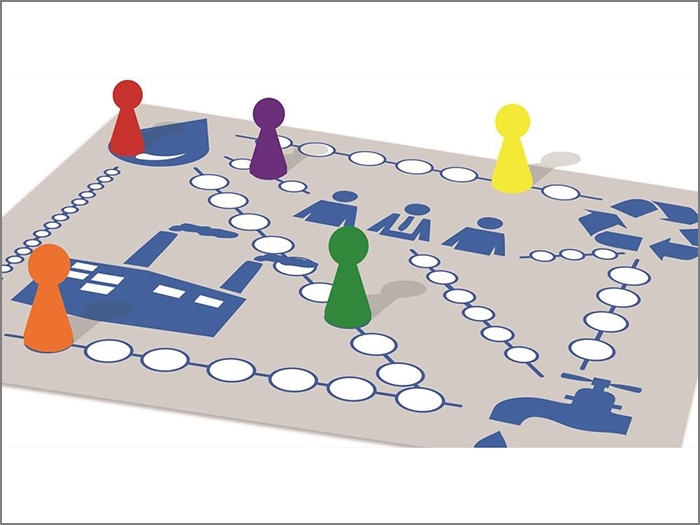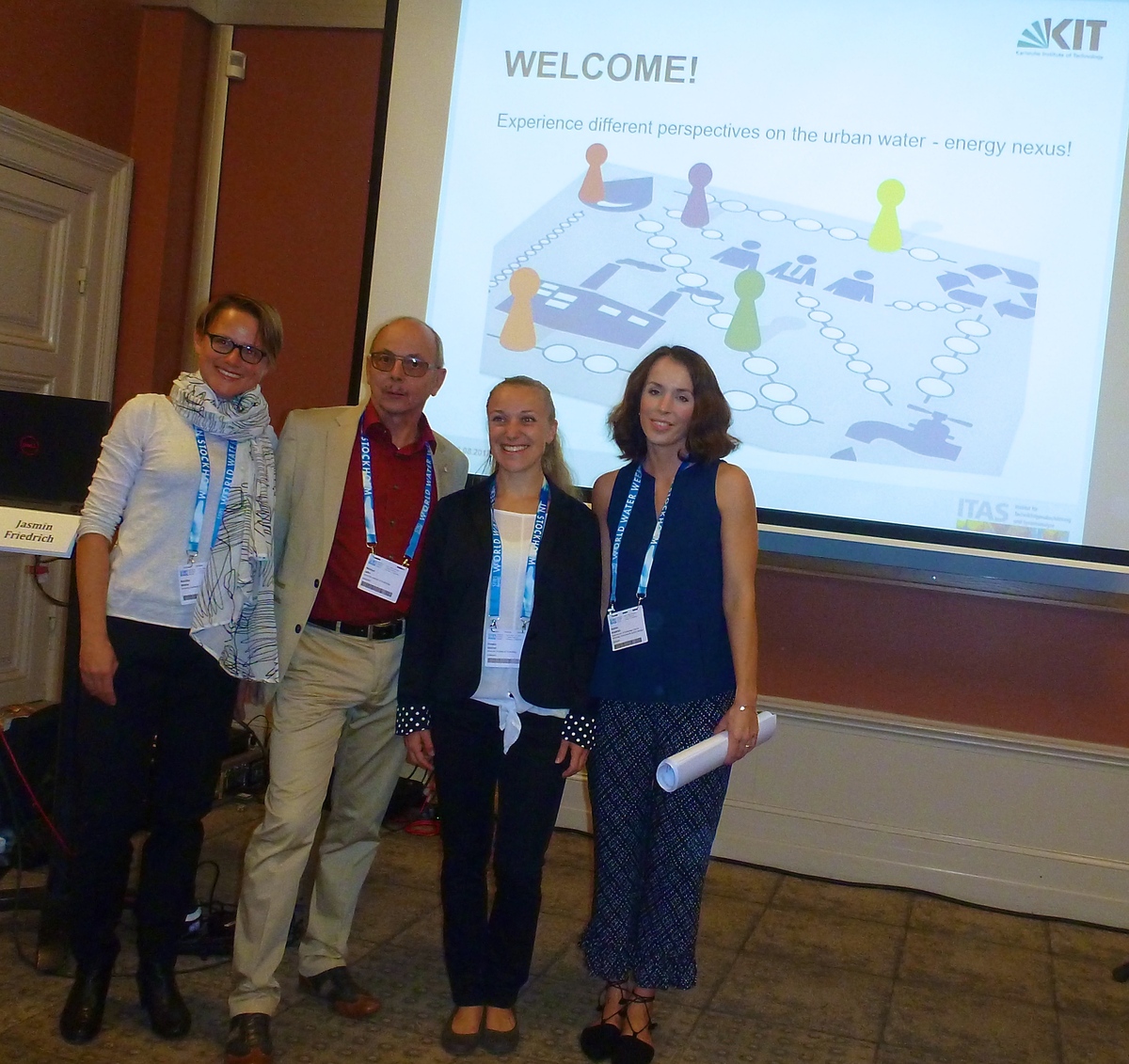Interactive ITAS session at the World Water Week in Stockholm
World Water Week is an annual event for water experts, development specialists, politicians, and heads of state from all over the world. They discussed the sustainable management of water over six days in Stockholm. The topic of this year’s week from 27 August to 1 September 2017, “Water and waste: Reduce and reuse”, is intensively researched at ITAS in the framework of the water-energy nexus. The institute’s nexus group took the opportunity to present the results of their work at the venue.
The request to treat wastewater no longer as waste product but as a resource can be heard more and more often in the context of the implementation of the overall concept of circular economy. However, this calls for radical changes – both in the heads of consumers and on the part of technology development. Although wastewater reuse has already been successfully realized in particular pilot projects (e.g., in the urban district Jenfelder Au in Hamburg and in the framework of the DEUS 21 project in Knittlingen, Baden-Württemberg), it is not yet implemented on a broad-scale level
The ITAS group – Jasmin Friedrich, Franka Steiner, Annika Weiss, and Helmut Lehn – organized a session which aimed at the participants’ active examination of the implementation of innovative wastewater utilization concepts. For this interactive involvement of the participants and the fact that most of the session was organized by junior scientists they were acknowledged with the conference organizers’ “Gold Standard”. In total, 16 of the more than 200 sessions received this certificate.
At the session, 30 participants from 25 countries discussed the drivers and barriers of alternative infrastructure solutions for wastewater treatment and reuse for two notional urban contexts (arid or wet) with divergent priorities (saving water or saving energy). The special challenge for the participants was to change the perspective and slip into the role of an urban stakeholder – for example that of a mayoress or property owner. “An interesting, challenging session introducing innovative solutions to utilize non-conventional water resources and enabling participants to take into consideration the multiple factors of decision making and implementation”, concludes Konstantina Toli, one of the participants and Senior Program Officer of Global Water Partnership. (08.09.2017)
Weitere Informationen
- ITAS session Experience different perspectives on the urban water-energy nexus! at the World Water Week



